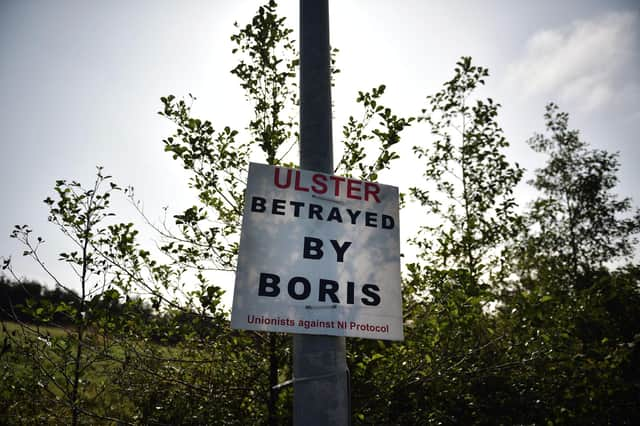Brexit Britain needs to realise it must make friends with European Union – Scotsman comment


Given the dangers posed by totalitarian China and Putin’s Russia, it is in the British national interest to maintain strong alliances with the world’s other liberal democracies and, most especially, with EU member states, given their proximity and the mutual importance of trade.
Boris Johnson and his fellow Brexiteers need to realise that they really did win the 2016 referendum and no longer need to carry on spinning Leave campaign propaganda that paints the “bureaucrats of Brussels” as comic book baddies. Political inertia is a dangerous thing.
Advertisement
Hide AdAdvertisement
Hide AdAmid the row over migrants crossing the English Channel, French interior minister Gérald Darmanin said his government would not accept British plans to force boats to return to France if this breaks maritime law. “The friendship between our two countries deserves better than posturing which undermines the cooperation between our ministries,” he added.
If the UK is trying to be diplomatic, it isn’t working.
The festering dispute over border arrangements between the British mainland, Northern Ireland and the Republic also appears to be getting worse, with the latest development a threat by Democratic Unionist Party leader Jeffrey Donaldson that his party will quit the Stormont parliament if their demands for changes to the Northern Ireland Protocol are not met.
The Protocol is an attempt to square the circle of how to have a hard border between the UK and EU, but not between two of their constituent parts or internally. Clearly, this is not geometrically possible, so what is required is an arrangement that may have some inconsistencies and perhaps even bends reality a little but which people can still live with.
If the dispute is allowed to continue without work towards a better solution, the risk is that some politicians will start to view the simplicity of a hard border as the best available option – despite what that would mean for peace in Northern Ireland.
Any return to the violence of the Troubles would create a conflict that crossed not just an Irish border, but a UK-EU one.
And, in such a situation, Britain would do well to have friends in Brussels.
A message from the Editor:
Thank you for reading this article. We're more reliant on your support than ever as the shift in consumer habits brought about by coronavirus impacts our advertisers.
If you haven't already, please consider supporting our trusted, fact-checked journalism by taking out a digital subscription.
Comments
Want to join the conversation? Please or to comment on this article.
